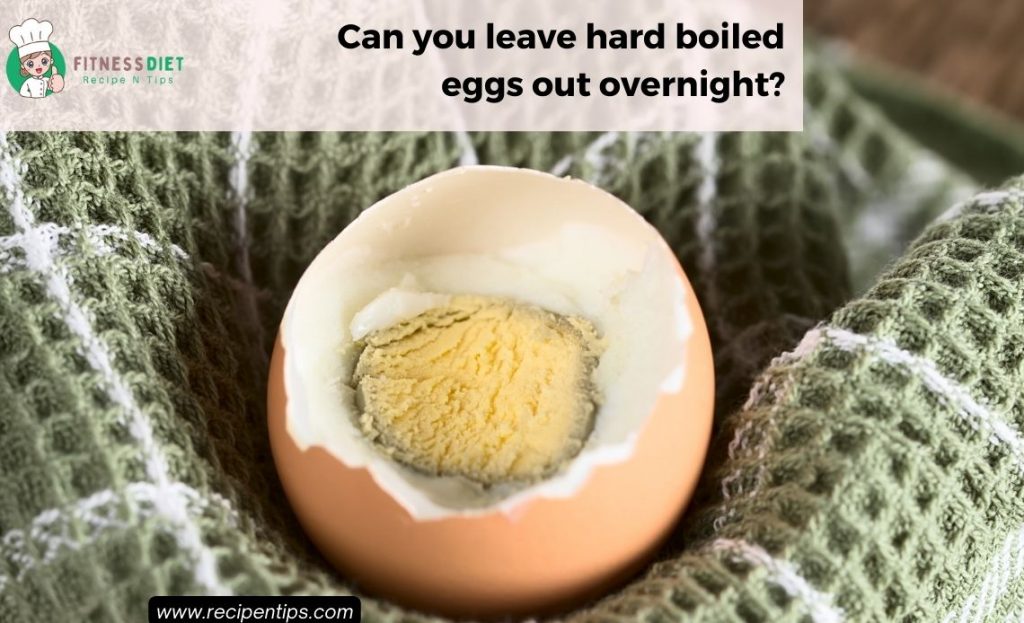Are you wondering if it is safe to leave hard-boiled eggs out overnight? This can be a tricky question because there are a few things to consider – such as how long the eggs have been boiled and the temperature of your environment.
In this blog post, we will explore whether it is safe to leave hard-boiled eggs out overnight and share some tips for storing them. Let’s get started with how long hard boiled eggs last for a night.
Can you leave hard boiled eggs out overnight?
It’s a common question: can you leave hard-boiled eggs out overnight? The answer is technical, yes, but there are some important caveats.
Unrefrigerated eggs will only remain safe to eat for a few hours, and they should be stored in a cool, dry place.
If you left hard boiled eggs out overnight in warm or humid conditions, they would start to spoil. They should be eaten within a week of being cooked.
So if you’re planning on leaving them out overnight, make sure to eat them within that time frame. All in all, it’s probably best to play it safe and refrigerate your boiled eggs left out overnight.
What is the shelf life of a hard-boiled egg?
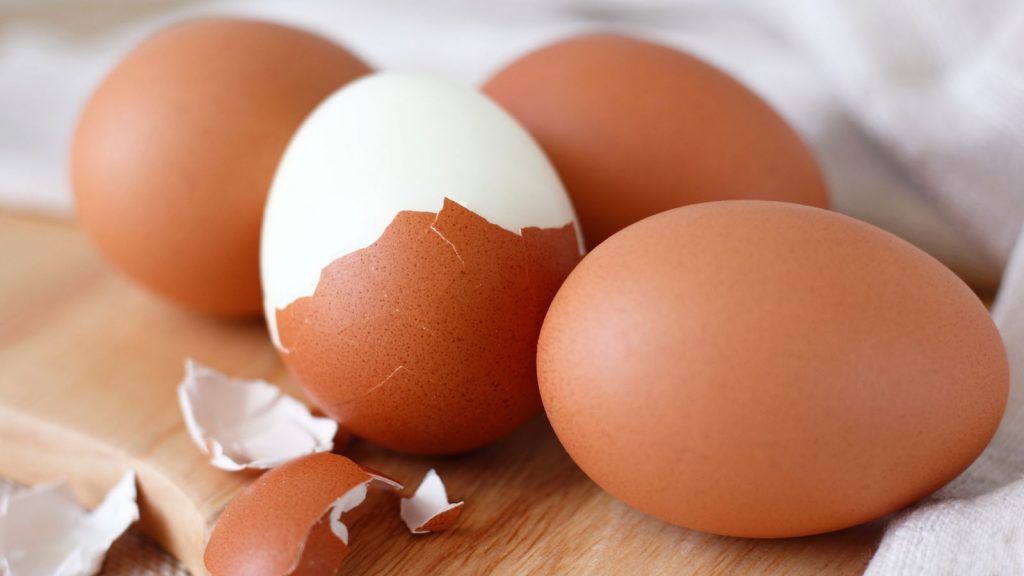
Hard-boiled eggs can be stored in the refrigerator for up to one week. The shelf life of a hard-boiled egg may be extended if it is peeled and stored in a container filled with water.
Under these conditions, a hard-boiled egg can be safely consumed up to two weeks after it is boiled.
Thus, while the shelf life of a hard-boiled egg is not indefinite, it can be quite long if stored properly.
Can you leave hard-boiled eggs out overnight?
It’s a common question: can you leave hard-boiled eggs out overnight? The answer is technical, yes, but there are some important caveats.
- Unrefrigerated eggs will only remain safe to eat for a few hours, and they should be stored in a cool, dry place.
- If you left boiled eggs out overnight for a long time, they would go bad.
- Hard-boiled eggs should be eaten within a week of being cooked.
- So if you’re planning on leaving boiled eggs out overnight, make sure to eat them within that time frame.
- All in all, it’s probably best to play it safe and refrigerate your hard-boiled eggs.
How to store hard-boiled eggs?
Here are some tips on how to store hard-boiled eggs so that they stay fresh and delicious:
- First, make sure the eggs are completely cooled before you store them. If they’re still warm, they can start to develop bacteria.
- Second, store the eggs in a clean container with a tight-fitting lid. If possible, use a container that’s specifically designed for storing hard-boiled eggs. It will help to keep them fresh and prevent them from picking up any unwanted flavors or odors.
- Third, if you’re not going to eat the eggs within a few days, you can store them in the fridge. Just make sure to keep them in a sealed container so that they don’t absorb any strange smells from your fridge.
- Fourthly, hard-boiled eggs can also be frozen for longer-term storage. However, frozen eggs should only be used for cooking, as they can be difficult to peel once thawed.
By following these simple tips, you can enjoy fresh and delicious hard-boiled eggs any time you want!
What is the best way to reheat a hard-boiled egg?
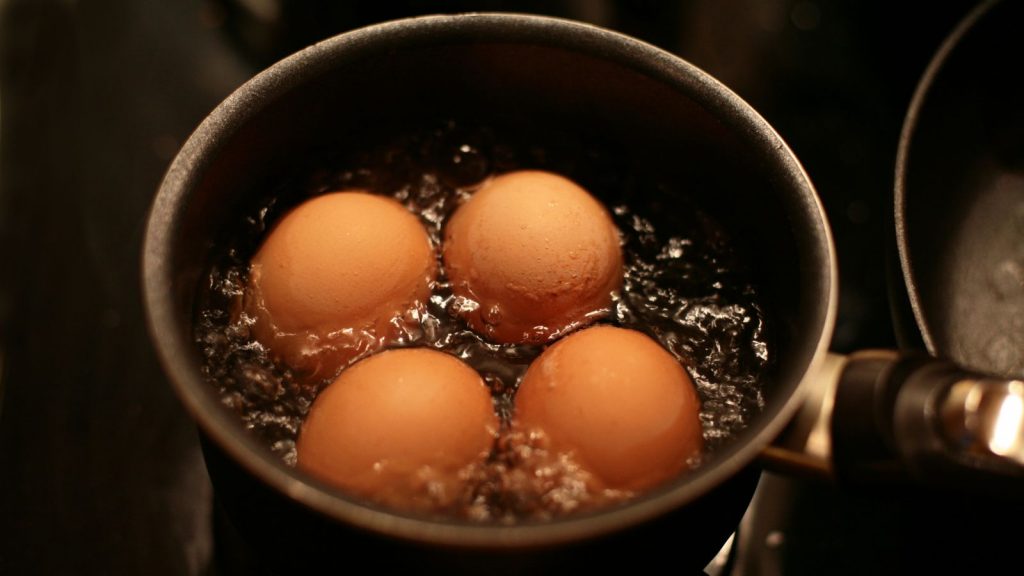
If you’ve ever reheated a hard-boiled egg only to find that it’s rubbery and gross, you’re not alone. It’s a common mistake that can be easily avoided with a little knowledge.
The best way to reheat a hard-boiled egg is actually to not reheat it at all. Instead, place the egg in a bowl of cold water for a few minutes until it reaches room temperature.
If you’re in a pinch and need to reheat the egg, the best method is to place it in a bowl of hot water for a few seconds.
It will help to preserve the texture of the egg and prevent it from becoming rubbery. With these simple tips, you can enjoy perfectly cooked hard-boiled eggs every time.
What are Hard-boiled egg’s nutrition facts?
Hard-boiled eggs are a healthy, protein-rich food that can be easily incorporated into your diet.
One large hard-boiled egg contains about 6 grams of protein. This is about 12% of the daily recommended intake for protein (56 grams for men and 46 grams for women).
Each egg contains vitamins A, B, and D. They are an excellent source of choline, which is essential for brain health.
One large egg contains approximately 77 calories, making it a low-calorie food that can help you reach your weight-loss goals.
Is it safe to eat hard-boiled eggs after one week?
It’s not advisable to eat hard-boiled eggs that have been left out for more than two hours. If you accidentally leave your eggs out overnight, make sure to throw them away.
Leaving hard-boiled eggs out at room temperature can allow bacteria to grow, which can cause food poisoning.
Symptoms of food poisoning from contaminated eggs may include nausea, vomiting, and diarrhoea. What happens if you accidentally put boiled eggs for an hour?
If you’re unsure whether your hard-boiled eggs are still safe to eat, it’s best to err on the side of caution and throw them away.
How long do hard boiled eggs last?
Hard-boiled eggs can last for up to one week in the fridge. But if you’ve left them out overnight, they’re no longer safe to eat.
If you’re not sure how long your hard-boiled eggs have been sitting out, it’s best to err on the side of caution and throw them away.
Hard-boiled eggs should be stored in the fridge in an airtight container. If they’re left out at room temperature, they can start to spoil within a few hours.
How to store hard boiled eggs?
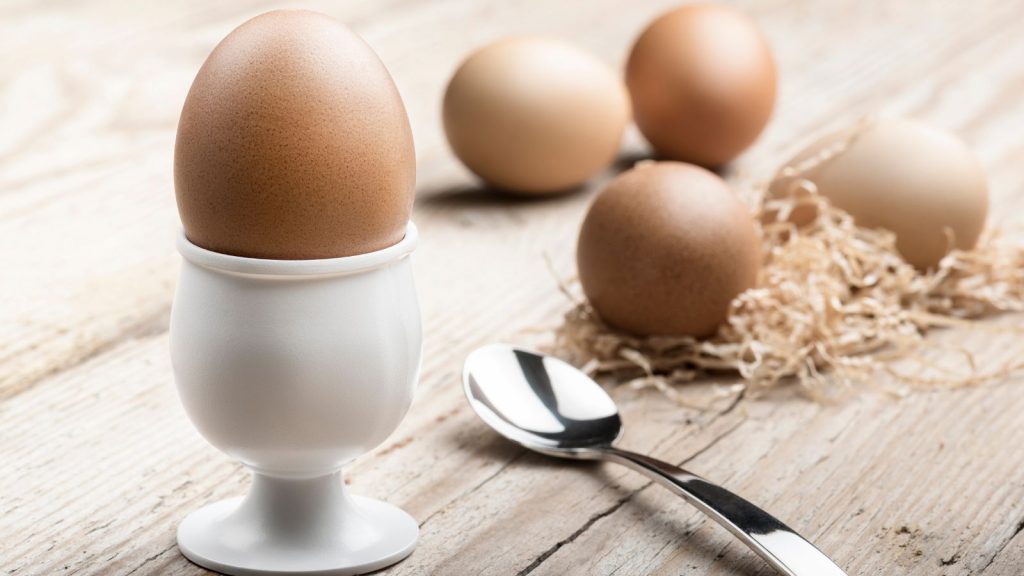
When it comes to storing hard-boiled eggs, there are a few things to keep in mind. First of all, how long do hard boiled eggs last?
If you store them properly, they can last up to a week in the fridge. However, if you left hard boiled eggs out overnight, they should be thrown out.
Left boiled eggs out overnight is a food safety risk and can cause illness. Here are a few tips on how to store hard boiled eggs so that they stay fresh and safe to eat:
- Place eggs in an airtight container or bag before refrigerating.
- Make sure the container or bag is labelled with the date the eggs were cooked.
- Hard-boiled eggs should be used within one week of cooking.
How long does it take for hard boiled eggs to go bad?
The reason hard boiled eggs go bad so quickly is that they’re already cooked. This means that bacteria can grow on them more easily than raw eggs.
So it’s important to be careful when storing and handling them.
If you’re not sure whether your hard boiled eggs are still good, the best thing to do is to throw them out. It’s better to be safe than sorry when it comes to food safety!
How long are boiled eggs good for in fridge?
Hard boiled eggs are safe to eat up to one week after they have been cooked. This is because the eggshell helps to protect the egg from bacteria.
However, if you have left your hard boiled eggs out of the fridge for more than one hour, then you should throw them away.
If you are not sure whether your hard boiled eggs are still good to eat, then you can try this simple test. First, crack the egg open and smell it.
If it smells fresh and like a normal egg, then it is probably still safe to eat. However, if it smells bad or off, then you should throw it away.
How to use hard-boiled eggs in shells left out overnight?
There are a few things to keep in mind if you’re planning on using hard-boiled eggs that have been left out overnight.
- First, make sure that they are cooked properly. If they were not cooked long enough, they could harbor bacteria that could make you sick.
- Second, check the eggs for any signs of spoilage before using them. If they smell bad or look discolored, it’s best to throw them out.
What do I need to do if I forget I was boiling eggs after one hour?
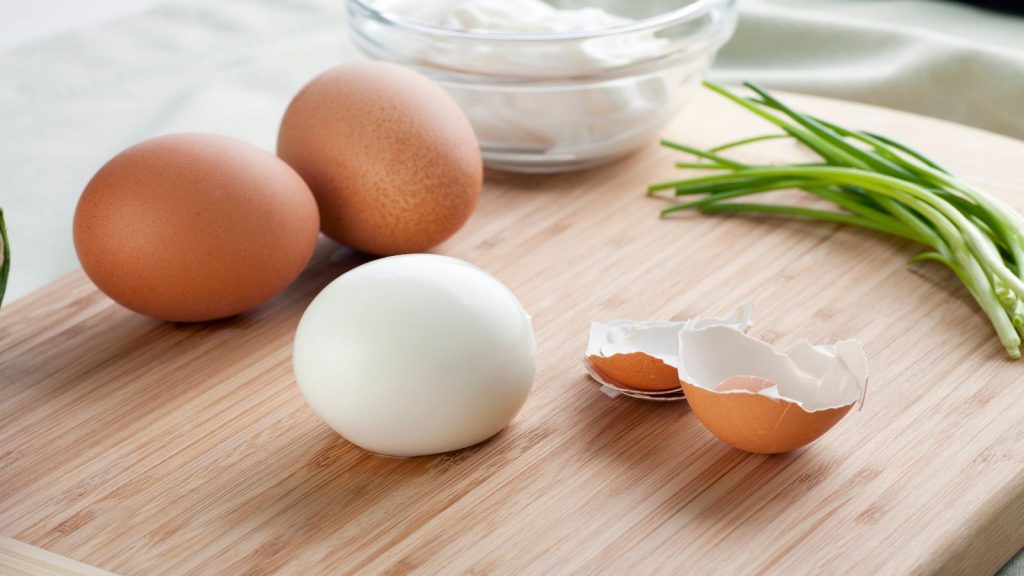
Hard-boiled eggs can be left out of the fridge for up to two hours without fear of food poisoning. However, if they’ve been sitting out for longer than that, it’s best to throw them out.
If you’re not sure whether or not your eggs are still safe to eat, there are a few ways to tell:
- The eggshell should be dry and free of cracks. If the shell is wet or cracked, the egg is no longer safe to eat.
- The egg white should be firm, and the yolk should be fully cooked.

